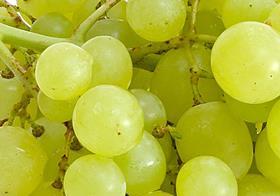
The Australian Table Grape Association (ATGA) has proposed in-transit cold sterilisation as an alternate treatment for exporting to the Vietnamese market this season.
The South East Asian nation is still yet to issue import permits to Australian fresh produce exporters for 2015, citing an ongoing review of its protocol surrounding Mediterrean Fruit Fly (Medfly) as the reason.
ATGA chief executive Geoff Scott said the industry remained hopeful that the Vietnamese Government would recognise Australia’s Medfly-free status under the terms of the East-West Protocol, however, it was important to put a contingency plan in place.
“There hasn’t been one detection of Medfly in Australia’s eastern states in the last 60 years, and we have been working closely with the Australian government to provide the required data that proves this,” Scott told Asiafruit. “Hopefully this should satisfy the Vietnamese officals, but should it be knocked back, we have already proposed cold treatment as an alternative option. We’re really hoping to regain access, either way, as quickly as possible.”
Scott said the urgency to resolve the impasse reflected the value of the Vietnamese market. “Table grapes made up over 80 per cent of Australia’s total fresh fruit exports to Vietnam last year,” he explained. “The trade was valued at A$33m, so it’s not an easy market to replace.”
Despite the potential rewards of shipping fruit to Vietnam, Scott said it was inevitable that exporters would begin redirecting their fruit to other Asian markets. Sales programmes for early season varieties got underway in early January, with South East Asian markets the core destinations.
“So far this season we have had strong volumes and excellent quality grapes coming out of Australia,” Scott said. “We have already exported quite a lot of the Ralli, Menindee and Flame seedless varieties, with Thailand and Indonesia showing some strong interest. Again Vietnam had been a strong market for these varieties but exporters have done a good job of reshuffling their programmes and keeping fruit moving.”






No comments yet